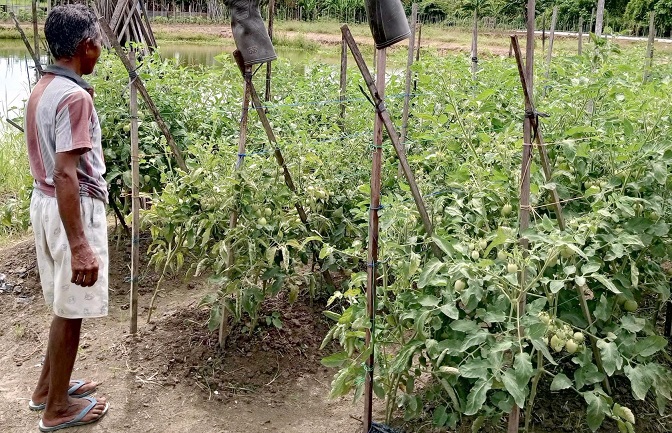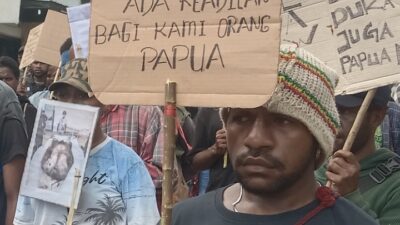Jayapura, Jubi – Farmers in Jayapura City are expressing concerns over the availability and cost of fertilizers. Due to the scarcity and high prices of fertilizers, many farmers are reducing their usage.
Abdullah, a farmer in Koya Timur, revealed that the high cost of fertilizers is a major obstacle for him in his farming endeavors. He has had to cut back on fertilizer usage due to the expense.
“In a year, my land requires 2.2 tons of fertilizer, but now I can only afford to use 1.8 tons. And even that amount is borrowed from a friend,” said Abdullah during an interview with Jubi on Monday (8/1/2024).
Abdullah utilizes non-subsidized fertilizer to enrich his 2-hectare vegetable plantation, purchasing it at a cost of Rp 680,000 per 50-kilogram bag.
Farming for approximately eight years, the 59-year-old cultivates a leased plot worth Rp 12 million per year, growing crops such as bird’s eye chilies, curly chilies, telescope chilies, and tomatoes.
“Tomatoes are harvested three times a year, and chilies once a year. The harvest is sold to collectors, and the prices are unpredictable,” added Abdullah.
Fertilizer issues are also voiced by Jeri, a farmer on Holtekamp Highway in Muara Tami District. His expenses often skyrocket due to the necessity of using non-subsidized fertilizers, which are more expensive than subsidized ones.
“I need four fertilizations during the planting to harvest cycle. If I buy subsidized fertilizer, it costs IDR 125,000 per 50-kilogram bag. For non-subsidized fertilizer, it’s IDR 1 million per 50 kilograms,” said Jeri, 48 years old. Cultivating a 1-hectare plot owned by the Muhammadiyah Association, Jeri grows chilies and tomatoes on the borrowed land.
Jeri harvests these commodities every three months, yielding around 10-70 kilograms per harvest. In one planting cycle of chilies and tomatoes, Jeri requires approximately 250 kilograms of fertilizer. He also commonly uses cow dung as natural fertilizer to maintain the fertility of his farmland. (*)














